Estimated reading time: 21 minutes
Living in Dubai is the dream for thousands of expats, enjoying a luxury lifestyle, a high salary and a no-tax income.
Dubai is a glittering modern city of glass and steel where dreams come true. The city has everything from sun-kissed beaches, lavish shopping malls, and top-class entertainment to lively nightlife.
Ultramodern skyscrapers pierce the skyline, including the Burj Khalifa. Standing at 830 metres tall, the world’s tallest building.
Other modern marvels include The Palm, a string of manmade islands shaped like a tropical tree and the Dubai Fountain, a magical water feature that pulses with music and colourful lights.
Living in Dubai can present a culture shock with laws that separate unmarried couples, ban kissing in public and where crossing the road in the wrong place can land expats with a fine.
Table of contents
- About Dubai
- Expats Living in Dubai
- Moving to Dubai
- Jobs and Salaries in Dubai
- Dubai Visas
- Leaving Dubai
- Travel to Qatar from Dubai
- Travel to Israel from Dubai
- Renewing UK passports from Dubai
- Cost of Living in Dubai
- Dubai Laws and Customs Expats to be aware of
- Renting and Buying a Property in Dubai
- Healthcare in Dubai
- Driving in Dubai
- Money, Tax and Pensions in Dubai
- IHT, Wills and Estate Planning
- How Financial Firms Are Regulated in Dubai
- FATCA and CRS
- Voting in Dubai
- Related Information
About Dubai
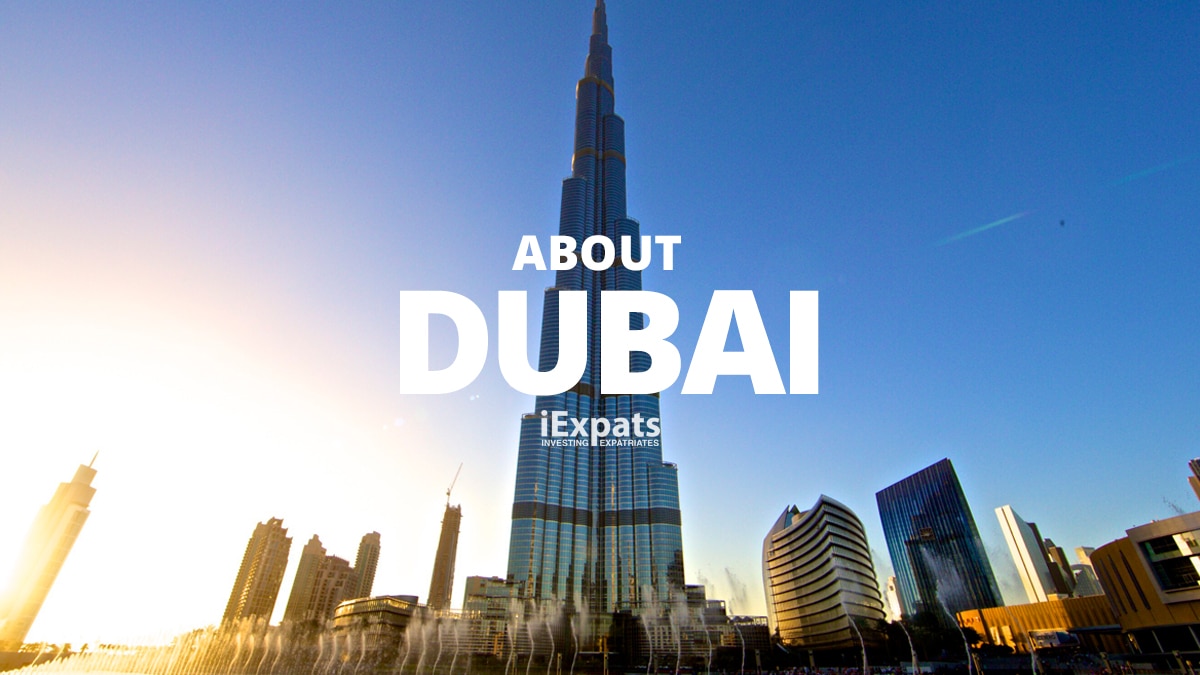
Dubai is one of the seven states making the United Arab Emirates, also call ‘the emirates’ or ‘the DUBAI’.
Each emirate is a city state ruled by an ‘emir’ – the Arabic term for a prince or military commander that stops just short of a king.
Dubai rises out of the desert on the eastern side of the Arabian peninsula, neighbouring the other large emirate Abu Dhabi.
Dubai was oil-rich, but today most of the state’s wealth comes from trade, tourism, and travel.
The city is an important hub for air travel, with millions of passengers crisscrossing the world from Europe stopping off on their way to Asia, Australia, and New Zealand.
Tourism plays an important role in the economy, with visitors flocking to the city mainly to shop in more than 70 malls. Sporting events, theme parks and the upcoming Expo 2020, sadly delayed for a year due to the Covid-19 pandemic.
Dubai Facts and Figures
Dubai is a fast-growing place where the population has almost tripled from 1.2 million in 2005 to more than 3.3 million in 2019.
Expats account for around 85% of the population, with 100,000 Brits making up the largest Western enclave.
Most of the expats come from India and the Asia Pacific.
Most people live in Dubai City, with a scattering over the rest of the emirate, which stretches over 1588 square miles of desert.
Religion, Language, and Culture
Islam is the state religion practised by most of the people living in Dubai. The government tolerates and does not interfere with the worship of other religions.
Dubai expects expats to respect the culture, laws, and traditions of Islam.
Climate
Dubai is a desert country with all-year sunshine and little rain. The summer is June to September, with high humidity and temperatures hitting a scorching 45C (115F). The heat eases between October and April, reaching between 25C and 28C (75F to 82F).
Economy
Tourism plays a major part in the Dubai economy. The city ranks as the fourth busiest in the world with the number of visitors rising by about 10% every year.
Surprisingly, oil and gas generate just 5% of Dubai’s GDP. Travel and trade are the country’s big earners, with the airport acting as a hub between the Asia Pacific and the west.
Expats Living in Dubai
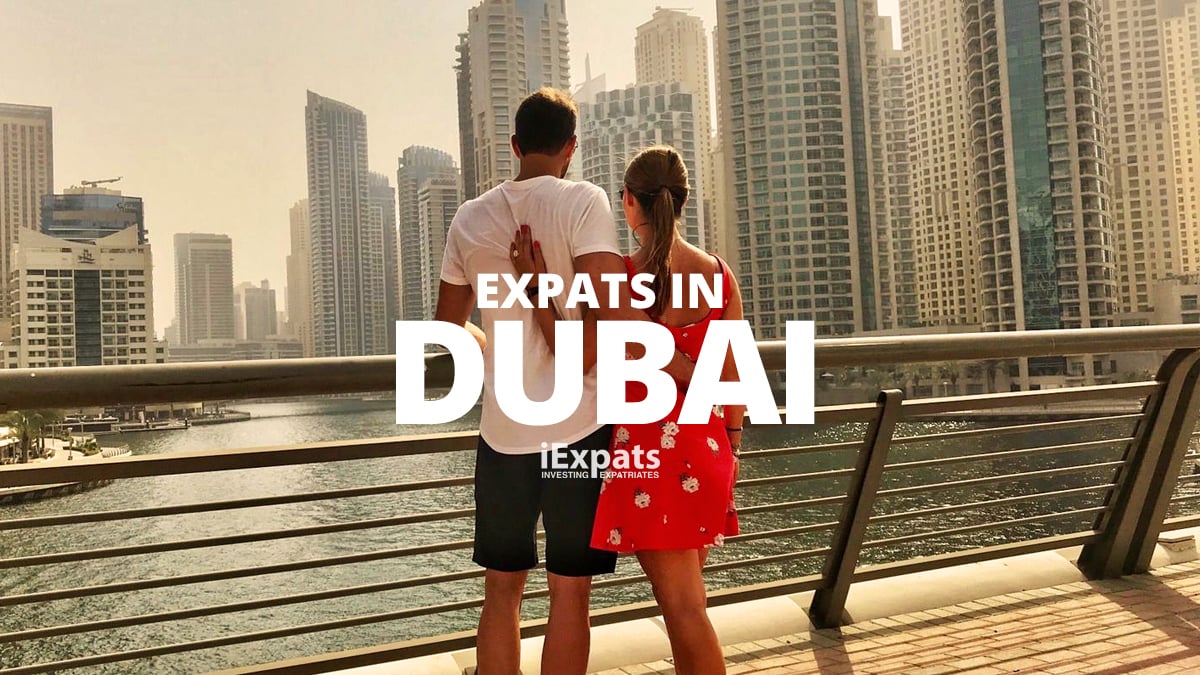
An estimated 100,000 British expats live in Dubai along with around 40,000 each from the USA and Canada. Australian, South Africa, French and German expat communities number around 10,000 each.
Where Expats Live in Dubai
If you are moving to Dubai, the places to look to live are:
- Mirdif – an outlying suburb with cheaper property than some of the more upmarket neighbourhoods
- Downtown – close to the massive Dubai Mall with high property prices as you would expect on the doorstep of much of Dubai’s shopping and entertainment areas
- Arabian Ranches – More family orientated than Downtown, this is a gated community with a golf course.
- Sports City – Offers what it says if you are into exercise and sports this is the place for you
- Motor City – These homes are around the F1 circuit and related businesses
- Dubai Marina – Sea front views over the Arabian Gulf from modern skyscrapers with a luxury lifestyle to match
- Business Bay – Homes close to the city’s financial centre and World Trade Centre
- Al Barsha – An expat hot spot for families looking for a villa with a pool that is close to plenty of things to do and the major commuting routes
- Jumeirah Islands – The ultimate in luxury even for Dubai, a city with a reputation for excess.
And do not rule out Abu Dhabi or Sharjah. Both cities lie in their own emirates.
Abu Dhabi is the United Arab emirates capital and is a two-hour commute away, while Sharjah is a close neighbour of Dubai, no more than a 30-minute drive from the other side of Dubai International Airport.
Find out the best places to live for expats in Dubai.
Moving to Dubai
With so many things to bear in mind when retiring to another country, it is difficult to know what to prioritise.
You need to have a list of what to do to make your break with the UK official and how to register as a new resident in Dubai.
Departing the UK for Dubai, Steps to take:
The following is a list of steps to take when departing the UK to move to Dubai:
Forwarding Address
Give your local council a forwarding address in Dubai. If you do not have one, pick someone reliable in the UK who can send your mail
- Stop or arrange to have benefits paid in Dubai.
- Speak to the International Pension Centre about claiming or receiving the state pension
- Tell HM Revenue & Customs (HMRC) about your plan to move to Dubai. Complete a Form P85 and file a P45 from your last employer if you have one
Arriving in Dubai, Steps to take:
Below is a list of important steps that must be taken upon arrival in Dubai:
Residence Visa
Organise a residence visa. Dubai does not grant permanent residence to expats. Those retiring to there have several options, including:
- A renewable five-year retirement visa for the over 55s.
- A renewable 10-year ‘golden visa’ for expats investing in Dubai.
- Sponsorship by close family already living in Dubai.
Each choice comes with a list of strict requirements
Emirates ID Card
Expats need an Emirates ID card before they can carry out day-to-day activities, like opening a bank account, to rent or buy a home or applying for a driving licence. To apply for the card, expats need:
- A UK passport.
- Dubai residency permit.
Older or infirm expats also need to produce a medical report from Dubai health authorities.
Fees depend on how long the Emirates ID card is valid for – which can be between one and 10 years.
Expats may apply online or in person for the card. Find out more about Emirates ID card applications.
Medical Insurance
Expats must show that they have valid personal medical insurance if retiring to Abu Dhabi or Dubai. You cannot apply for a visa or residency without adequate cover
Read more about healthcare in Dubai.
Jobs and Salaries in Dubai
Dubai is the place where high-flying expats can make the most of their skills and qualifications, live a luxury lifestyle and enjoy a lucrative tax-free salary.
When they die, expats pay no income tax, capital gains, or wealth taxes.
The only tax is VAT, levied on what expats buy at a rate of 5%.
Finding a Job
Recruitment agencies abound in Dubai as companies seek to attract the best talent. The boom days of expansion are ending, but plenty of professional opportunities remain.
The government has a major push to develop Dubai into a major international technology and innovation hub.
Expat Earnings Packages
Expats in most sectors boost their earnings when moving to Dubai.
HSBC Bank’s Expat explorer survey reckons the average expat salary is $138,000 a year, with three out of four expats confirming they earn more in Dubai than if they did the same job back home.
Packages for employees likely come with allowances for housing, schooling children, healthcare, and a car.
End of Service Pay
Sometimes called a gratuity, the amount varies depending on the type of contract and time served.
The tax-free payment of up to 30 day’s salary for each year worked, providing the gratuity comes to no more than the total wages paid over two years.
Dubai Visas
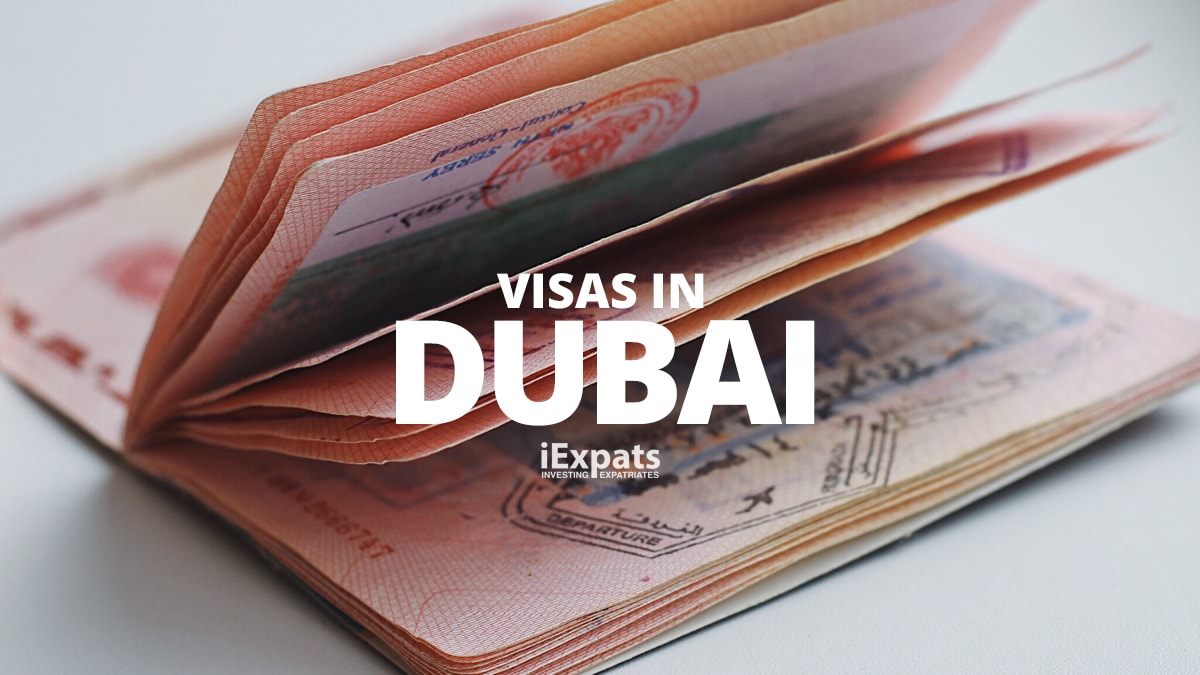
British expats can enter Dubai on a free 30-day visa with the choice of extending the visa to an extra 30 days during the stay.
To gain residency, expats without an employer need, sponsorship, a golden visa, or retirement visa.
Working Visa
Businesses will arrange working visas for newly arrived expats.
The visas come with the job and are transferrable to other employers but run out after 30 days if an expat is unemployed.
Sponsorship
Family already resident in Dubai can apply for visas for dependants and close family.
Golden Visa
A golden visa is a 10-year renewable residency permit for investors and entrepreneurs.
Expats must show they have AED10 million (£2.22 million) or more invested in Dubai, such as:
- At least AED 10 million was deposited in an investment fund in Dubai
- Starting a company in Dubai with capitalised with at least AED 10 million
- Holding shares in a DUBAI company worth no less than AED10 million
- Having at least AED 10 million invested across each of the above, providing real estate makes up no more than 40% of the total
Expats cannot borrow the money to invest and the investment must last for at least three years.
Retirement Visa
Retirement visas are five-year renewable residence permits for the over 55s. Expats can retire straight from work in Dubai or from overseas.
To qualify, expats must tick one of the following boxes:
- Own a property worth AED2 million (£442,000)
- Have savings of at least AED1 million (£221,000)
- Can show proof of a monthly income of AED20,000 or more (£4,420)
Read more about visa options for expats in Dubai
Leaving Dubai
Dubai authorities may stop expats leaving if they involved in legal proceedings, or have unpaid debts, including owing money on credit cards, loans, or traffic fines.
Travel to Qatar from Dubai
Dubai has broken diplomatic ties with Qatar and closed entry by air and sea. Dubai has no land border with Qatar.
Travel to Israel from Dubai
British expats with Israeli visas or stamps in their passports can enter Dubai but cannot work there.
Border patrols may refuse entry to British-Israeli dual nationals.
Renewing UK passports from Dubai
A passport should be valid for at least six months from the date of entering Dubai.
Expats with a residence permit must hold a passport valid for no less than three months.
Expats can apply for a new UK passport online from Dubai.
You need a colour digital image that is in focus and measuring 750 pixels high x 600 pixels wide. The file size should be between 50KB and 10MB.
The image should be a head-and-shoulders image in front of a plain background with nothing one else in the frame.
A standard adult UK passport costs £75.50 online.
We have written a guide that will help you, check out the British Passport guide for expats.
Cost of Living in Dubai
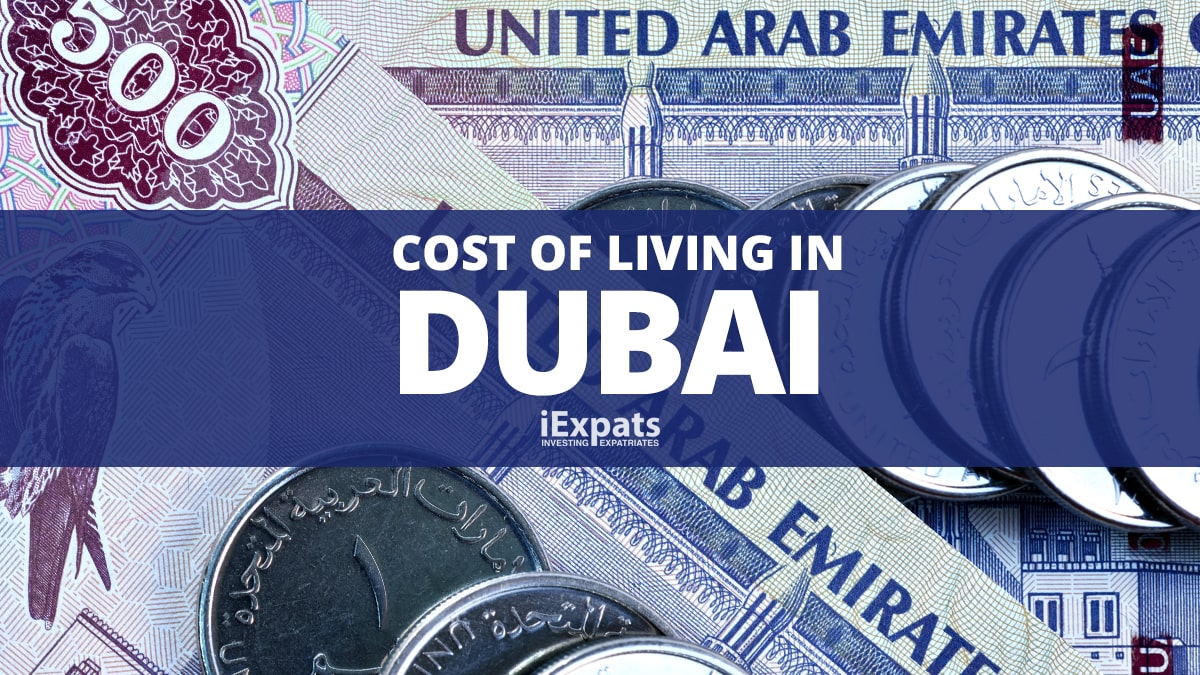
Cost of living in Dubai is tracked on many different levels. Price tracking statistics reckons the cost of living in Dubai is 1.95% lower than in the UK, excluding rent.
But statistics shows rents in Dubai are on average 45% higher than those in the UK.
Electricity, gas, and water bills for an 85 square metre apartment average AED608 a month (£134). Utilities usually come with air conditioning and garbage collection factored in.
The bills retirees pay in Dubai are the same as they would pay in the UK, but often cheaper.
Rent depends on size and location of a property. Expect to pay around AED9,100 a month (£2,000) for a three-bed city centre apartment, falling to AED6,500 (£1,435) for the same apartment in the suburbs.
Broadband (60mbps) with unlimited data is around AED375 (£80) a month, but often comes bundled with a smartphone SIM card and cable TV.
If you have a swimming pool, the running and cleaning costs can be an expensive luxury.
Villas or apartments that are on a golf or resort complex come with service charges for the communal areas, so check them out before you rent or buy.
Out shopping, many designer brands come with at premium prices in line with those in leading fashion stores in the UK.
Eating out is less expensive, too. Budget around AED200 (£45) for a three-course meal for two in a mid-range restaurant.
Cost of Living in Dubai Compared to London
- Consumer Prices in Dubai are 10.19% lower.
- Consumer Prices Including Rent in Dubai are 14.84% lower.
- Rent Prices in Dubai are 20.86% lower.
- Restaurant Prices in Dubai are 18.25% lower.
- Groceries Prices in Dubai are 1.28% lower.
- Local Purchasing Power in Dubai is 1.22% higher.
Cost of Living in Dubai Compared to Manchester
- Consumer Prices in Dubai are 6.45% higher.
- Consumer Prices Including Rent in Dubai are 26.90% higher.
- Rent Prices in Dubai are 76.68% higher.
- Restaurant Prices in Dubai are 2.23% lower.
- Groceries Prices in Dubai are 1.98% higher.
- Local Purchasing Power in Dubai is 2.24% lower.
Dubai Laws and Customs Expats to be aware of
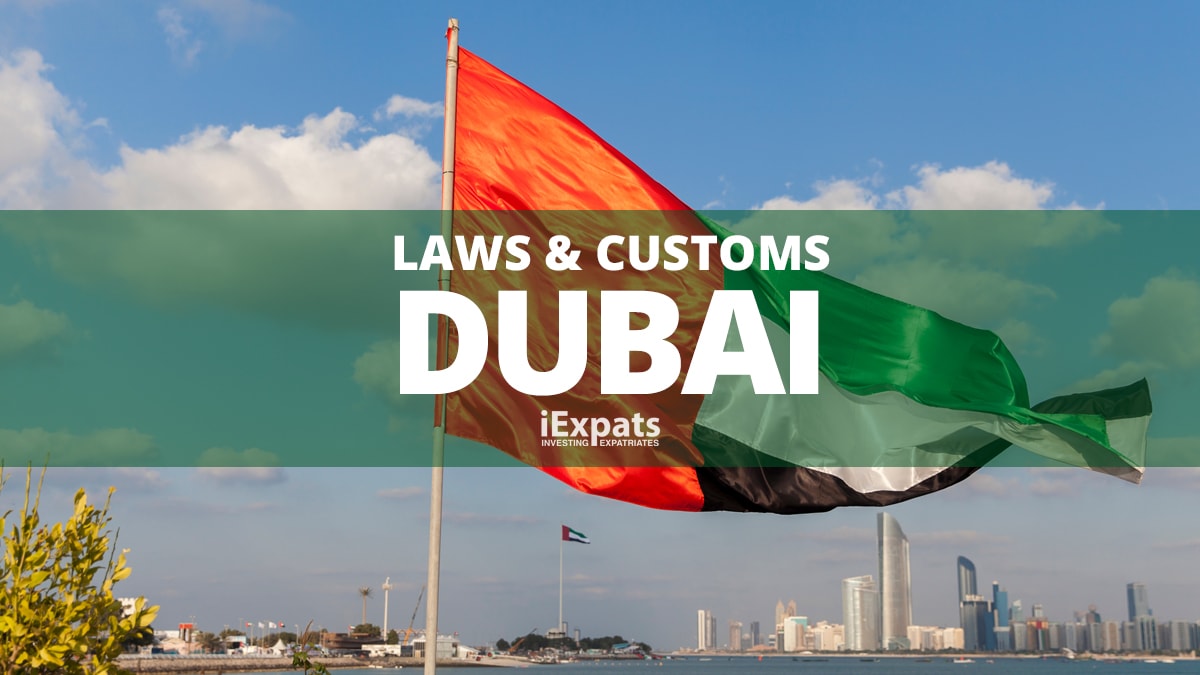
Some freedoms taken for granted in the UK may lead to arrest or a fine in Dubai.
Expats should be aware of their behaviour to avoid upsetting locals. Here are some of the most common actions that offend:
Alcohol
Non-Muslim expats need a licence to drink alcohol at home or in bars. A licence is valid for the Emirate issuing the licence.
Drinking or drunkenness in public is an offence.
Drinking alcohol in Sharjah is illegal.
Crossing the road
Pedestrians should only cross a road at designated places. Jaywalking is an offence.
Dress code
In public places, women should cover the tops of their arms and legs. Underwear should not be visible. Swimwear is only acceptable on beaches or at swimming pools.
Cross-dressing is illegal.
Drugs
Penalties for having drugs are severe and can attract a death penalty.
Testing positive for drugs counts as possession. Herbal highs that are legal in the UK are banned in Dubai.
Even skincare products and E-cigarette refills have ingredients considered illegal in Dubai, like CBD oil. If you have them, they will be confiscated, and you may face criminal charges for possession.
Financial Crime
Financial crime covers fraud, bouncing cheques, and not paying credit cards, loans, or bills.
Failing to pay debts can lead to imprisonment, a fine and deportation.
Importing Goods
Importing pork foods or pornography is illegal.
The Dubai government publishes lists of prohibited and restricted goods for expats arriving in the country – be aware the lists vary between Abu Dhabi, Dubai and Sharjah.
Dubai Ministry of Health publishes online list of controlled substances
Offensive Behaviour
Swearing and making rude gestures are considered obscene acts. Offenders can face jail or deportation.
Public displays of affection, including kissing, are not allowed.
Photography
Photographing many government buildings and military bases is not allowed.
Photographing someone without permission even in a public place is frowned on.
Ramadan
The religious fast of Ramadan lasts for a month each year. During Ramadan, everyone is banned from eating, drinking, or smoking in public.
Relationships Outside Marriage
All sex outside marriage is illegal, irrespective the status of a relationship in the UK.
Breaking the law runs the risk of imprisonment, a fine or deportation.
If you are not married or closely related to each other, it is illegal to live together or share a same hotel room with someone of the opposite sex.
If a woman is pregnant outside marriage, both partners could face imprisonment and deportation.
Same-sex Relationships
All same-sex relationships are illegal, even if the couple is recognised as officially married in the UK.
Renting and Buying a Property in Dubai
Dubai has a thriving property market with plenty of homes range from studio apartments to smart villas.
Beware the cost of a property can take up half of an expat’s monthly income with prices on a par with those in many European countries.
Find out the details about buying a property in Dubai.
Housing standards are high, with most homes well appointed.
Swish city centre apartments with access to gyms, saunas and pools are popular with rents coming at a premium.
Villas are often in compounds around leisure facilities like golf clubs, tennis courts and even restaurants.
For renters, homes come with and without furnishings. Moving into an unfurnished property may seem cheaper but fitting out a new home can be an expensive hidden cost. A good way to buy appliances and furnishings is through classified web sites as expats ending contracts to return home will advertise bargains before they leave.
Expats need a residence visa and Emirates ID card to rent or buy.
Most leases run for 12 months with landlords expecting a year’s rent upfront and a security deposit of at least 5% of the annual rent.
Do not bother shipping appliances from outside Dubai – the voltage is different than in the UK which means few will work.
Expats can buy homes in Dubai on similar terms as the UK – paying a deposit and cash for the balance or borrowing the money on a mortgage.
Buyers, like renters need a residence visa and Emirates ID card.
Many homes are newly built or under construction. In the past developers have gone bust before handing over the keys, so take professional advice before committing to a deal.
The British Embassy web site has a list of English-speaking lawyers in Dubai who can help with a property purchase.
Thinking about buying a property abroad, read this guide.
Healthcare in Dubai

Hospitals and medical care in Dubai are on a par with Britain’s National Health Service.
However, care is a mix of public and private facilities
Dubai nationals are treated for free or at a low-cost, but expats must take out private health insurance to use the service. Some public health services are paid-for but subsidised for expats.
Healthcare Costs
Consulting a doctor costs around AED220 and double for an out-of-hours call.
Costs for operations, tests and routine procedures compare with private hospital charges in the UK.
How much an expat pays for private health cover depends on if they have pre-existing conditions and their age. Basic cover with limited features and benefits starts from AED160,000 (£465) rising to AED18,934 (£4,200) for premium cover.
A hidden cost is healthcare for employing domestic workers. Employers pay these premiums, with a basic policy starting at AED650 a year (£145).
Private health policies exclude dental work, opticians, and treatment for hearing problems, except as add-ons costing extra.
Taking Medicines to Dubai
Many medicines available over the counter in the UK are banned in Dubai.
If you need them to treat a personal condition, you will need written approval before travelling or on landing in Dubai.
You can apply online before leaving the UK through an electronic application form. Forms take at least five working days to process.
If you take unapproved medicines into Dubai, you could face confiscation and a fine.
The Ministry of Health suggests bringing a supply of up to three months.
An official list of banned medicines is published online
Healthcare if you Leave Dubai
If you leave Dubai for a short trip, you are not covered for healthcare, even by the National Health Service if you come to the UK.
You will need to take out adequate travel insurance for peace of mind.
Driving in Dubai
Resident expats can drive a car on their UK licence until they receive their residence permit.
On receiving the permit, apply straight away for a Dubai driving licence.
Pay attention while driving. Standards are low and drivers often speed.
Do not drive below the minimum speed limit for the road you are on – it is an offence punishable by an AED400 (£88) fine
Applying for a Driving Licence
UK driving licence holders do not have to take lessons or a test to qualify to drive in Dubai.
They can apply, pay the AED800 (£175) fee, collect a new local licence and drive away – providing they have car insurance.
Car Insurance
Like most countries, car insurance offering basic third-party cover is mandatory in Dubai, and like most countries, this can upgrade to a comprehensive policy.
Road Accidents
Vehicles should only be moved if they are in the way of other drivers.
It is an offence to leave the scene before police arrive.
Money, Tax and Pensions in Dubai
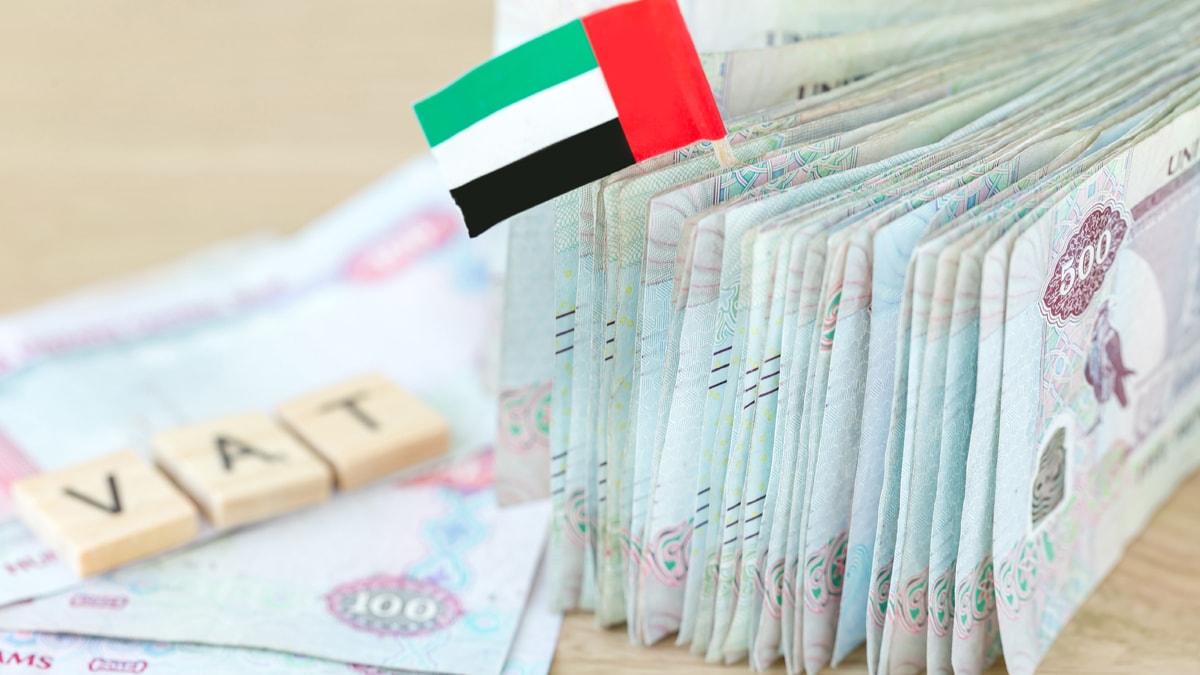
The Dirham (AED) is the unit of currency for Dubai with an exchange rate of about five to the Pound.
Sterling or Dirham?
Foreign exchange transfers are always a headache for expats with income from the State and other pensions.
In recent years, volatile world markets have made predicting the best time to convert from Sterling to dirhams impossible. Foreign exchange is also expensive unless you use a specialist service.
That uncertainty makes living on a fixed income difficult to budget.
Expats can explore the cheapest way to exchange currency with an international service that offers long-term fixed rates and lower charges than a bank.
Drawing a UK Pension when Living in Dubai
This table outlines if your pension rises in line with UK inflation and pays a guaranteed income.
| Pension | Type | Index-linked? | Income guarantee? | Currency | Paid to local bank? |
|---|---|---|---|---|---|
| UK State Pension | – | No | Yes | £ | Yes |
| Public sector | – | Yes | Yes | £ | Yes |
| Civil Service | – | Yes | Yes | £ | Yes |
| Workplace | Defined benefit (DB) | Yes | Yes | £ | Yes |
| Workplace | Defined contribution (DC) | No | No | £ | Yes |
| Personal | Defined benefit (DB) | Yes | Yes | £ | Yes |
| Personal | Defined contribution (DC) | No | No | £ | Yes |
| QROPS | Defined contribution (DC) | No | No | Any major currency | Yes |
Expats should check the terms and conditions of their own pensions to confirm how their provider pays in Dubai.
In Dubai, the British state pension is frozen at the amount of the first payment for life – effectively removing the index-linking retirees receive in the UK. The maximum first payment is AED790 or £175.20 weekly (AED41,180/£9,110 a year).
Expats in the Dubai cannot join a non-workplace QROPS without paying the Overseas Transfer Charge as Dubai has no QROPS providers and joining a scheme outside the country where you live comes with the tax penalty.
The charge is 25% of the amount transferred into the QROPS.
Some workplace and international organisation QROPS are exempt from the OTS, but as a retiree, you are unlikely to qualify.
Find out more about QROPS.
Do not forget UK ‘trivial commutation’ rules still apply even if you retire to Dubai even if you only have one or more small funds worth less than £30,000 in total.
The rules mean you need to take advice from a suitably qualified IFA or free guidance from the government’s Pension Advisory Service
Can I Top Up or Defer my UK State Pension in Dubai?
Expats can make voluntary contributions in either in Dubai or the UK to top up a State Pension entitlement. They can also defer drawing the State Pension.
Lost UK Pension
Around 1.6 million savers need to find their lost pensions worth £19.4 billion, according to the latest research. Learn how to find your lost UK pension.
IHT, Wills and Estate Planning
Many expats have real estate, investments and bank accounts scattered across two or more countries.
When they die, these assets are distributed according to local laws, regardless of any will in another country.
In Dubai, wealth is distributed under Sharia law, but non-Muslims can draft a common law will in Dubai. Learn about what’s needed for a legal expat Will.
The DIFC site has a Sharia law wealth distribution calculator that shows the percentage split of an expat’s net worth when they die under local laws.
Expats with significant wealth are advised to make a will detailing their final wishes for their wealth in each country where they hold assets to minimise any death duties they pay and to ensure their wealth goes to the people they want to inherit.
How Financial Firms Are Regulated in Dubai
Each emirate applies financial services rules on firms and advisers.
In Dubai, the regulator is the Dubai Financial Services Authority (DFSA).
From their web site, expats can check out advice firms and IFAs before agreeing to buy a product or service.
Learn about what expats need to know about financial advice in Dubai.
FATCA and CRS
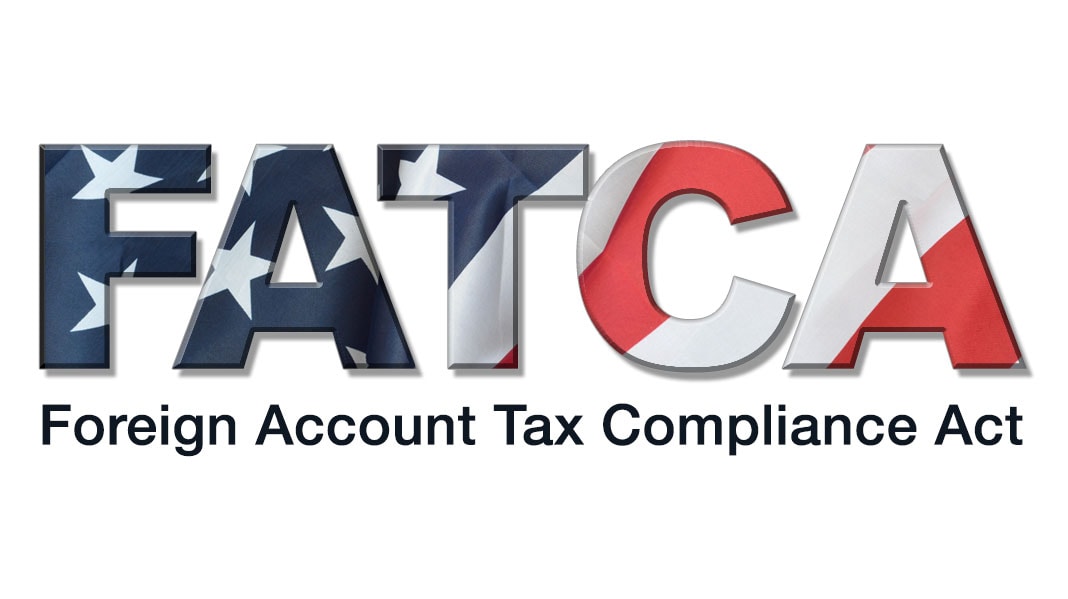
Expats with income outside Dubai cannot rely on banks and financial firms there not telling the tax authorities in other countries about their wealth.
Dubai has signed up to both the US Foreign Account Tax Compliance Act (FATCA) and the Common Reporting Standard (CRS) under the UAE.
Under the agreements, the UAE may not expect residents to pay tax, but will pass information about the wealth of foreign nationals with investments and accounts in the country on to the American Internal Revenue Service and the CRS, a network of more than 100 global tax authorities.
Voting in Dubai
Expats can still vote in the UK once they have retired to Dubai.
Expats can vote from overseas in UK General Elections and Bye-Elections in the constituency where they last lived.
Currently, the 15-year rule restricts voting. The law allows expats to vote in elections for 15 years after leaving the UK.
The government has announced scrapping this rule, but no date is set for repealing the law.
Related Information
Below is a list of related articles you may find of interest.
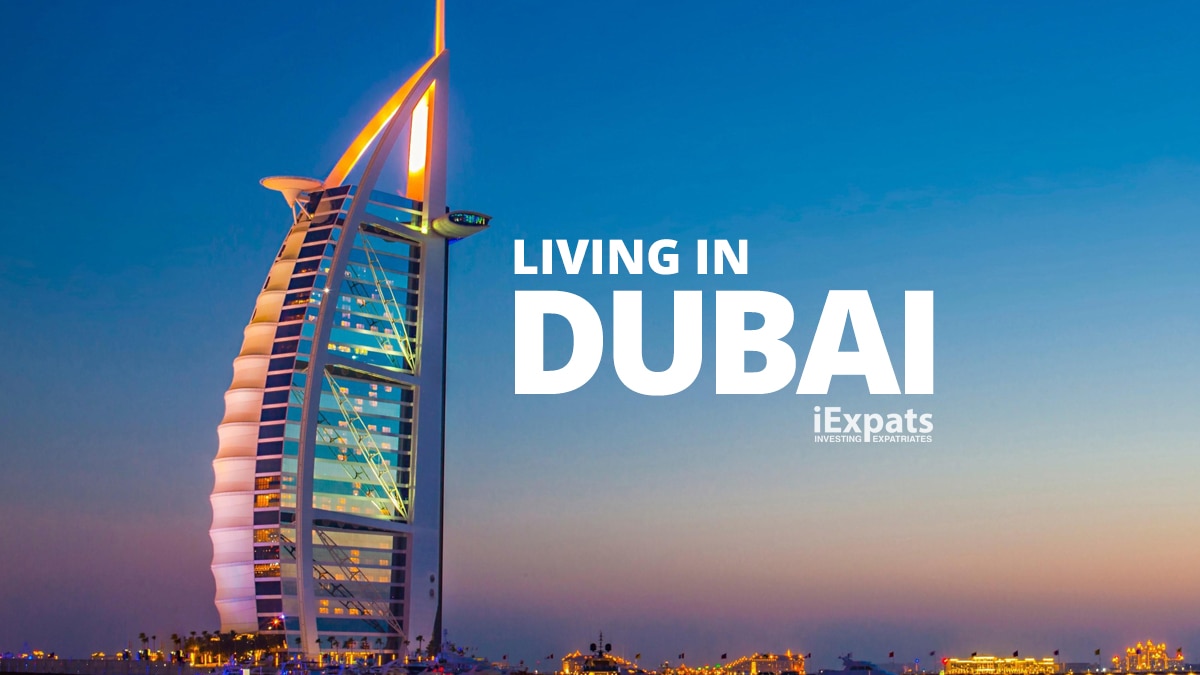
do not have reciprocal healthcare agreements. You should buy comprehensive travel and medical insurance before you enter the country.
Official information British people moving to and living in the United Arab Emirates (UAE) need to know, including residency, healthcare and driving.